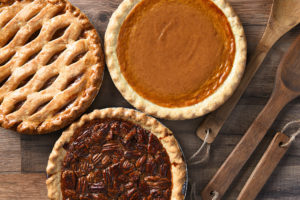You know how it is, sometimes you have a late night out, and you think to yourself “I’ll take care of everything in the morning.” But let’s be honest with ourselves, when we don’t get enough sleep nothing gets done correctly, and that includes exercising and dieting. There’s a reason for that.
The Internet, for good reason, likes to talk about diet and exercise when it comes to weight loss, but did you know that sleep is just as important? It’s true! If you don’t get enough sleep each night, it’s likely going to have an effect on your weight loss efforts. The percentage of people not getting adequate sleep has skyrocketed in recent years, unfortunately, so you’re not alone.
Whether it’s because you were partying with friends, watching a movie, or taking just one more Buzzfeed personality test, you’re now hitting snooze trying to get that extra bit of sleep you need to face the day. When the alarm goes off you need reinforcements to pry yourself from the bed. Your brain is probably in a fog, whether or not you had a few drinks the night before.
You may struggle with diet and exercise, but getting enough sleep each night can actually help you with conquering these each day! It’ll leave you feeling better and help you lose weight. Yah, sleep can help you lose weight.
Wondering how this works? Keep reading to get the scoop.
Poor Decision Making
The morning struggle is because a lack of sleep affects your brain’s frontal lobes, the part of the brain responsible for making decisions and controlling impulses. So, when you feel hungry, you make impulsive decisions about what to  eat. Poor decisions include overeating and choosing unhealthy options. You order a large latte with extra cream and sugar to give you energy, a bagel for breakfast because it’s easy, a vending machine snack because you’re lazy, and fast food for lunch because you didn’t plan ahead.
eat. Poor decisions include overeating and choosing unhealthy options. You order a large latte with extra cream and sugar to give you energy, a bagel for breakfast because it’s easy, a vending machine snack because you’re lazy, and fast food for lunch because you didn’t plan ahead.
When you’re asleep you don’t notice you’re hungry, which is why your body often wants to go into sleep mode when you haven’t eaten for a while (not that you should be letting your body get to that point, you need to eat) but what happens when you stay up late? You crave a midnight snack, and junk food sure sounds good. Without enough sleep, you’re likely to feel sluggish and groggy during the day. And what gives you quick energy? Foods that are high in carbs.
Someone who’s sleep deprived craves food that satisfies the reward centers in their brain. Sweets, chips and sodas may provide a burst of energy, but they soon leave you feeling depleted and hungry for more. And who feels like exercising when they’re feeling tired? All you want to do is crash and burn. The last thing on your mind is boot camp, and even if you went you wouldn’t be putting your best effort into it, so you end up skipping and instead lie on the couch. Not the best situation to be in when trying to lose weight.
Slows Recovery Time
You just got back from a hard day at boot camp. Maybe it was arm day, or a really intense leg day, but you’re sore and tired and feel good after a sweat. You know that three things will help you in the coming days to prevent muscle pain: food and water, exercise, and sleep.
Food and water are a given when it comes to recovery from intense exercise, your body needs the fuel to repair your muscles and make them stronger. And continuously exercising, even when sore, helps break up any built-up chemicals that may be causing pain, and will make you feel energized again quickly. But one of the most important aspects of exercise is sleep.
When you don’t sleep your body doesn’t recover correctly after a workout. Your muscles will feel sore and you can end up hurting yourself because your body isn’t functioning at 100%. So, when you do an intense workout make sure to give your body the proper amount of recovery time through solid amounts of sleep.
Messes with Appetite Hormones
Your body and mind need seven to nine hours of sleep each night to recuperate from the work of being awake. When those precious hours of sleep are taken away, your body is affected in negative ways.
We’re about to talk science for a minute, but bear with us here. The first way is that a lack of sleep affects the two main hormones that control your appetite: ghrelin and leptin. Ghrelin is responsible for telling your brain when it’s time to eat. When you don’t get enough sleep your body produces more than the normal amount of this chemical. Basically, when you’re tired, you’re going to be hungrier.
Leptin, on the other hand, is a chemical that signals to your brain when you’re full. This is a hormone you want a lot of, especially when trying to lose weight. Unfortunately, when you’re sleep deprived, your body slows its production  of leptin, causing you to overeat.
of leptin, causing you to overeat.
You can see the problem here, then. When your body doesn’t have enough rest not only are you hungrier, but your body doesn’t fill up as quickly as it should. You may think you’re eating a good amount, just until you’re full, but really you’re stuffing yourself with unnecessary calories. Instead, head to sleep early tonight.
Increases Production of Cortisol
Have you noticed that on the days you don’t get a good night’s rest you seem to get more stressed? You’re not well prepared to handle what life throws at you when you’re tired. Any time you’re stressed, your body produces more cortisol. Ready for a little more science? You’re learning a lot about your body’s chemicals today.
Known as the “stress hormone,” cortisol helps regulate many of your body’s natural processes, including appetite, blood sugar levels, and the metabolism of fats, carbohydrates, and protein. High levels of cortisol signal your body to conserve energy, slow metabolism, and increase blood sugar, all of which interfere with your ability to lose weight.
If you feel like you’re struggling with your weight loss, try putting in a few extra hours of sleep tonight, you may find yourself more energized and less hungry overall.
